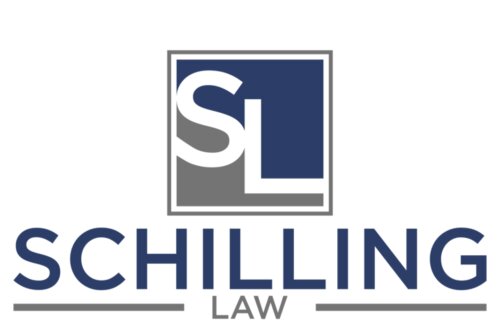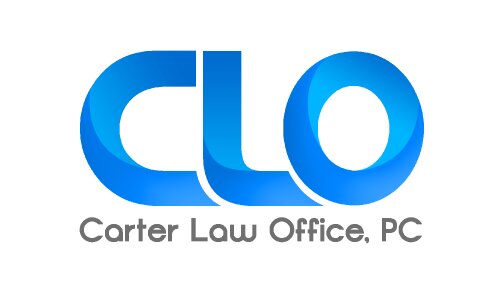Best Real Estate Contracts and Negotiations Lawyers in Kansas
Share your needs with us, get contacted by law firms.
Free. Takes 2 min.
Free Guide to Hiring a Real Estate Lawyer
Or refine your search by selecting a city:
List of the best lawyers in Kansas, United States
About Real Estate Contracts and Negotiations Law in Kansas, United States
Real estate contracts and negotiations in Kansas involve the legal processes and documents used in buying, selling, leasing, or transferring real property. A real estate contract is a binding agreement between parties outlining their rights and obligations. Negotiations play a significant role in ensuring that the interests and needs of both buyers and sellers are properly addressed before a contract is signed. Kansas law sets specific requirements for real estate agreements and recognizes certain legal standards that must be met for a contract to be enforceable.
Why You May Need a Lawyer
Real estate transactions are some of the most significant commitments a person can make. Several situations make consulting a lawyer advisable:
- Drafting or reviewing purchase agreements to protect your rights
- Dealing with complicated negotiations or terms
- Addressing concerns about property title or boundaries
- Ensuring seller disclosures meet Kansas state requirements
- Resolving disputes over earnest money, inspection results, or contract breaches
- Navigating commercial property purchases or sales
- Handling issues with mortgage, financing, or liens
- Dealing with landlord-tenant lease agreements or disputes
- Managing joint ownership, inheritance, or partition of property
Professional legal advice can provide clarity, prevent costly mistakes, and ensure compliance with Kansas law throughout the real estate contract and negotiation process.
Local Laws Overview
Kansas has specific statutes and rules governing real estate contracts. Some of the most important aspects include:
- Statute of Frauds: Kansas law requires that contracts for the sale of real estate must be in writing to be enforceable.
- Required Contract Elements: A valid real estate contract must identify the parties, provide a clear description of the property, specify the price and payment terms, and be signed by all parties.
- Disclosures: Sellers must make required disclosures, including any known material defects and specific statements if the property was ever used for methamphetamine production.
- Earnest Money: Earnest money is typically held by a neutral third party, such as a title company, and disbursed according to contract terms.
- Contingencies: Contracts often include contingencies for inspection, financing, and appraisal. These allow parties to cancel or renegotiate under certain conditions.
- Broker Involvement: Real estate agents and brokers in Kansas must be licensed and are regulated by the Kansas Real Estate Commission.
- Title and Closing: Title insurance and closing procedures are standard in Kansas, ensuring there are no undisclosed liens or ownership issues.
Understanding these legal requirements helps prevent disputes and ensures a smoother transaction process.
Frequently Asked Questions
What makes a real estate contract legally binding in Kansas?
A real estate contract is legally binding in Kansas when it includes all essential elements: the identification of parties, clear property description, agreed purchase price, signatures of all parties, and compliance with Kansas’ Statute of Frauds (the requirement that contracts for real estate be in writing).
Can a buyer or seller back out of a contract in Kansas without penalties?
Once signed, real estate contracts are generally binding. However, if the contract includes contingency clauses for financing, inspections, or appraisals, a party may withdraw without penalty if those contingencies are not met. Otherwise, breaking the contract could lead to forfeiture of earnest money or legal action.
Are oral real estate agreements enforceable in Kansas?
No. Kansas law requires that real estate agreements be in writing and signed to be legally enforceable.
Does Kansas require specific disclosure forms from sellers?
Yes. Sellers must disclose known material defects affecting the property’s value. There are also state-specific disclosure forms for certain situations, such as properties previously used to manufacture methamphetamine.
Is the use of a real estate agent required for buying or selling in Kansas?
No, but many buyers and sellers use licensed agents for their expertise and assistance with negotiations, paperwork, and legal compliance.
What is earnest money and how is it handled in Kansas transactions?
Earnest money is a deposit made to demonstrate the buyer’s commitment to complete the purchase. In Kansas, it is typically held in escrow by a third party until closing or until the parties otherwise agree on its release.
What happens if problems are found during a home inspection?
If the contract includes an inspection contingency, buyers may negotiate repairs, ask for credits, or even terminate the contract based on inspection findings without penalty.
Can contract terms be negotiated after signing in Kansas?
Contract terms can only be changed if all parties agree in writing. Unilateral modifications are not permitted.
How are real estate disputes resolved in Kansas?
Disputes may be resolved through negotiation, mediation, arbitration, or litigation, depending on the contract language and seriousness of the issue.
Who handles the closing process in Kansas real estate transactions?
Closings in Kansas are commonly managed by title companies, with involvement from realtors, attorneys, lenders, and the parties themselves.
Additional Resources
If you need further guidance or official information on real estate contracts and negotiations in Kansas, consider the following resources:
- Kansas Real Estate Commission (Regulation of agents and brokers, licensee search, complaints)
- Kansas Bar Association (Legal information and attorney referrals)
- Kansas Office of the Attorney General (Consumer protection related to real estate fraud)
- Local County Register of Deeds (For property records and title information)
- Legal Aid of Kansas (Potential assistance for those who qualify)
Next Steps
If you are facing a real estate contract or negotiation issue in Kansas:
- Gather all relevant documents, such as contracts, correspondence, inspection reports, and property disclosures.
- Identify your main concerns or specific questions for a legal professional.
- Contact a qualified Kansas real estate attorney. Consultation can help clarify your rights and obligations and reduce the risk of costly errors.
- Consider reaching out to your local bar association for referrals or to the Kansas Real Estate Commission for agent and broker issues.
- Be proactive. Address potential issues early, before signing any contract or when disagreements first arise, to help protect your investment and interests.
Navigating real estate contracts and negotiations in Kansas can be complex. Legal advice tailored to your situation can provide confidence, save time, and help ensure a successful transaction.
Lawzana helps you find the best lawyers and law firms in Kansas through a curated and pre-screened list of qualified legal professionals. Our platform offers rankings and detailed profiles of attorneys and law firms, allowing you to compare based on practice areas, including Real Estate Contracts and Negotiations, experience, and client feedback.
Each profile includes a description of the firm's areas of practice, client reviews, team members and partners, year of establishment, spoken languages, office locations, contact information, social media presence, and any published articles or resources. Most firms on our platform speak English and are experienced in both local and international legal matters.
Get a quote from top-rated law firms in Kansas, United States — quickly, securely, and without unnecessary hassle.
Disclaimer:
The information provided on this page is for general informational purposes only and does not constitute legal advice. While we strive to ensure the accuracy and relevance of the content, legal information may change over time, and interpretations of the law can vary. You should always consult with a qualified legal professional for advice specific to your situation.
We disclaim all liability for actions taken or not taken based on the content of this page. If you believe any information is incorrect or outdated, please contact us, and we will review and update it where appropriate.
Browse real estate contracts and negotiations law firms by city in Kansas
Refine your search by selecting a city.









